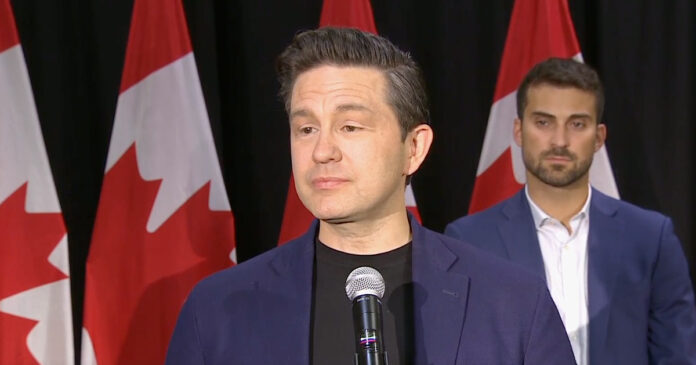Immigration Minister Marc Miller hinted recently that he may soon announce an increase in Canada’s immigration targets. The usually outspoken Conservative leader Pierre Poilievre seemingly has nothing to say about that.
“Whether we revise them upwards or not is something that I have to look at,” Miller said earlier this month. “But certainly, I don’t think we’re in any position of wanting to lower them by any stretch of the imagination.”
Officially, Canada plans to bring in 465,000 permanent residents this year, 485,000 next year, and 500,000 by 2025.
But don’t be fooled: we also invite in hundreds of thousands of additional residents every year, such as temporary foreign workers and international students, so our population actually grew by 1.05 million in 2022 even though we have a below-replacement fertility rate of 1.40 births per Canadian woman.
Canada’s exorbitantly high immigration numbers are straining the housing supply, the healthcare system, and social services such as food banks.
Many journalists, myself included, have been asking Conservative leader Pierre Poilievre what his immigration targets would look like if he becomes prime minister.
In a July press conference for ethnic media, blogger Darshan Maharaja asked Poilievre whether reducing immigration targets could help relieve the demand side of Canada’s housing crunch.
“In order for housing to become affordable at current rates of immigration we need to build six million homes by 2030,” Poilievre answered. “Right now we’re on track to build about 1.4 million homes. So we have to choose, either we’re going to build more homes or we’re going to have a big problem.”
“We gotta build, we gotta build now,” Poilievre said.
When I asked Poilievre’s office whether he would keep Prime Minister Justin Trudeau’s immigration targets, and what he thinks about immigration minister Marc Miller possibly increasing the targets this fall, I received no answers to my questions and was instead sent a link to a CPAC video.
“My common sense policy on immigration will be driven by the number of vacancies that private sector employers want to fill, the number of charities that want to sponsor refugees, and the families that want to reunite quickly with loved ones,” Poilievre stated in the video during a stop in Ottawa.
“What’s wrong with the 500,000 target in your mind?” another journalist asks Poilievre.
“I think what’s wrong is Justin Trudeau’s incompetence… I’ll make sure we have housing and healthcare so that when people come here they have a roof overhead and care when they need it.”
People who would have been hesitant to say it out loud even a year ago are now admitting it: our high immigration levels make it more difficult for Canadians to house themselves.
Even individuals with full-time employment can’t keep up with the average rent of $2,000 per month ($3,000 in Vancouver), and end up living out of their vehicles at highway rest stops.
Immigration is now becoming a ballot issue for voters who historically may have only ever expressed support for our system. According to a poll commissioned by Bloomberg News, 68% of Canadians believe Trudeau’s immigration targets negatively impact the housing market.
So, yes, Poilievre should be offering up a quantitative figure to let us know where he really stands on the matter, instead of always deflecting with calls to ‘build, build, build.’
Until he does, we can only conclude that the Conservative party does, in fact, agree with Trudeau’s immigration targets.
With no opposition or critique of Trudeau’s immigration levels from any political party in the House of Commons, there will be no acknowledgment that Canada’s immigration plan actually does not work to counteract an aging population and workforce. Because immigrants themselves age and most come with dependents, parents, and grandparents, immigration does not ultimately address the problem of replacing retirees.
Deeper questions arise once you know these facts: do our high immigration targets exist solely so that banks have an endless supply of debtors, landlords an endless supply of renters, and corporations an endless supply of workers who are less aware or assertive of their rights?
I await Poilievre’s answers and numbers.
